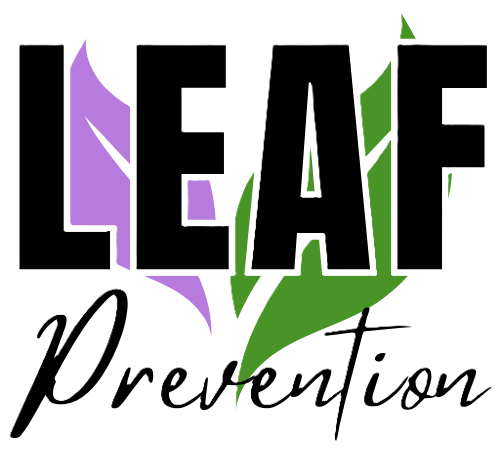

Blog Posts
Dr. Vivek Murthy is the current Surgeon General of the United States. In this role, Dr. Murthy provides Americans with current, scientifically proven information to maintain healthy lifestyles.
One aspect of a healthy life is workplace well-being. In a recent report, “The U.S. Surgeon General’s Framework for Workplace Mental Health & Well-Being,” Dr. Murthy described the workplace as “one of the most vital parts of life,” capable of giving us community connections, opportunities for personal growth, and a sense of meaning. He encourages workplaces to become “engines for mental health and well-being” (2022).
Dr. Murthy also noted the current cultural climate—after several years of upheaval during the COVID-19 pandemic, many workers are more attuned to the parts of their jobs that produce chronic stress.
Some employees, after experiencing work from home, got a taste of better work-life balance and became quicker to recognize the red flags of burnout and unhealthy work culture. Other workers, especially those in medical fields, experienced extreme burnout that they aren’t eager to endure again.
Dr. Murthy explains that because of the changes brought on by the pandemic, right now is a critical time to address workplace culture and put employees’ mental health first.
In his 2022 framework, Dr. Murthy provides five essential areas that can help address mental health and well-being at work.
These essentials are based on both research and personal feedback from leaders and industry experts. Each essential is also informed by basic human needs, such as security, belonging, or autonomy.
Dr. Murthy encourages organizational leaders to use this framework as a starting point for evaluating their culture and adapting to their employees’ needs. We will provide a brief overview here, but please read the entire framework for more detail.
Protection from Harm
Employers can minimize physical harm (such as occupational hazards and violence) as well as psychological harm (such as discrimination, harassment, and emotional hostility). Company programs around DEIA (diversity, equity, inclusion, and accessibility) can help confront bias and set a welcoming tone for the workplace.
Employers need to do their best to ensure adequate rest. This can be done by considering the expectations around work hours, overtime, and employees’ availability off the clock.
Workplace leaders can also normalize and support mental health to help employees deal with emotional challenges and become better versions of themselves. LEAF offers free programs to help businesses with mental health training.
Protection from harm also means that employees feel a sense of financial and job security.
Connection & Community
Humans have basic needs for both social support and belonging. Especially in the wake of the COVID-19 pandemic, many employees are feeling an increased desire for social connection. So much of our time is spent at work—it’s worth considering how employers can help foster genuine senses of community and belonging in their companies.
One way Dr. Murthy’s report suggests is by “creating cultures of inclusion and belonging.” We already mentioned diversity and inclusion efforts as a way to combat harm; initiatives for inclusion also support a sense of belonging at work.
Company leaders can also be intentional about building trusted relationships with their teams, as well as encouraging collaboration and teamwork.
Work-Life Harmony
This component focuses on employees’ needs for autonomy and flexibility. It’s worth considering employees as whole people and being cognizant of their responsibilities and interests outside of work.
Dr. Murthy suggests that employers can:
Mattering at Work
Dr. Murthy’s framework states that “knowing you matter has been shown to lower stress, while feeling like you do not can raise the risk for depression.” The framework also cites studies that show lowered risks for health complications in people who reported meaning and purpose in their lives.
One way employers can dignify their workers is by providing a livable wage. Worries about money only exacerbate stress, and although a lower wage may save a few dollars in the short term, studies show that stressed employees’ lost productivity also adds up.
Employers can also engage and empower their workers when making organizational decisions. For example, employees can help with projects such as mission statements or defining company goals.
Employers can then help connect an individual’s work with the larger goals of the organization. People like to feel like they’ve helped accomplish something great—and it’s worth celebrating! “Building a culture of gratitude and recognition” is another way Dr. Murthy recommends affirming employees’ value at work.
Opportunity for Growth
This component goes hand-in-hand with the last one. Workers thrive when they have opportunities to acquire new knowledge—and put it to work. A sense of accomplishment “confers a sense of competence that reduces stress, anxiety, and self-doubt,” says Dr. Murthy.
The Surgeon General’s framework recommends that employers offer training and mentoring for employees, provide clear and equitable pathways for career advancement, and provide feedback and guidance to their workers to support their progress.
Workplace leaders face a huge responsibility to their workers—but imagine the impact a healthy workplace can have on a community. When leaders prioritize their teams’ well-being, it causes a ripple effect that fosters growth and thriving.
What can employers do next?
Consider reading through the full version of Dr. Murthy’s “The U.S. Surgeon General’s Framework for Workplace Mental Health & Well-Being.” The report contains much more detail, further resources, and many actionable steps.
Contact us at LEAF at (607) 432-0090 to learn more about the workplace wellness programs we offer! We can help you schedule trainings at no cost to help improve your business culture and educate your team about mental health.
“Office of the Surgeon General (OSG).” n.d. U.S. Department of Health And Human Services Office of The U.S. Surgeon General. Accessed February 27, 2024. https://www.hhs.gov/surgeongeneral/index.html.
“The U.S. Surgeon General’s Framework for Workplace Mental Health & Well-Being.” 2022. U.S. Department of Health And Human Services Office of The U.S. Surgeon General. 2022. https://www.hhs.gov/surgeongeneral/priorities/workplace-well-being/index.html.